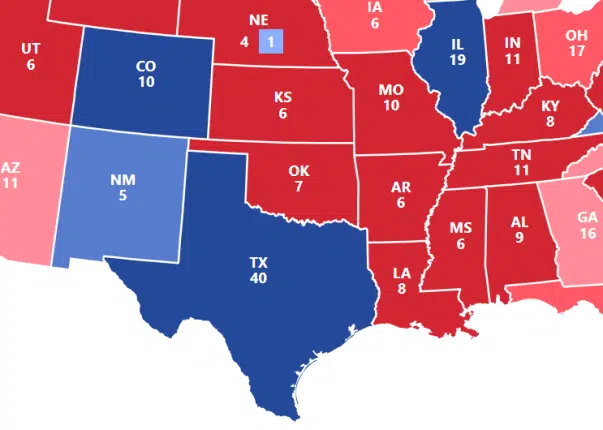By Bill Wilson –
On Feb. 25, the people of Ireland headed to the polls to elect a new government for the first time since the nation accepted an €67.5 billion bailout from the European Union (EU) and International Monetary Fund (IMF). The result is widely expected to find Fine Gael, the nation’s conservative party, in control of the Parliament, and Enda Kenny the new Prime Minister.
It is opposition to the bailout itself that has swept Fine Gael back into power, which critics said was an abdication of Irish sovereignty. It wants to renegotiate the terms of the bailout to get a lower interest rate, which Kenny has called “penal”. The current interest rate for the bailout loans is 6 percent.
As part of the terms of the EU-IMF credit line, Germany and France also wanted Ireland to raise its 12.5 percent corporate tax rate. But, after meeting with German Chancellor Angela Merkel, Kenny has rejected these demands.
Kenny had also pledged that Anglo Irish Bank will not receive any further assistance from Irish taxpayers if his party was elected, even though the bank’s chairman has said he needs another €15 billion. Thus far, the bank has received €29.3 billion to cover losses stemming from shoddy loans the bank made. Kenny wants the bank shut down for good, and proposes that unsecured bondholders bear part of the losses.
In response, Moody’s and Standard and Poor’s both downgraded Irish debt. Moody’s said Fine Gael’s stand “call[s] into question the government’s willingness to provide additional support to the banks beyond that which has already been provided to date, and reflect the increasing risk of some type of burden-sharing with senior creditors.”
Apparently, the creditworthiness of sovereigns is now dependent not only on managing and guaranteeing the finances of the government, but the finances of private banks, too. Sinisterly, it looks very much as if the credit rating agencies are being used as a tool of coercion to prevent financial institutions from eating the losses for their own malinvestments.
The credit rating agencies had responded similarly to Iceland when it refused to bail out its banking system in 2008. After Icesave failed, British and Dutch investors who had funds in the bank had their deposits covered by their governments. The UK and Netherlands then in turn demanded that Iceland repay them for the “loan”.
A national referendum in 2009 on the issue found 93.2 percent of the Icelandic electorate rejecting a proposal to guarantee the deposits of foreign investors who had funds in the Icelandic bank. The referendum was invoked when President Olafur Ragnur Grimmson vetoed legislation the Althingi, Iceland’s parliament, had passed to pay back the British and Dutch.
Now, Iceland will return to the polls again by April 20 to settle the same exact question. Under the current terms, Iceland would have to pay £2.35 billion to the UK, and €1.32 billion to the Netherlands by 2046 at a 3 percent interest rate. This proposal too is likely to fail, as the Icelandic people remain solidly opposed.
As well it should fail. Why should taxpayers in Iceland, Ireland or anywhere else for that matter be on the hook for the poor decisions made by banks? Because that’s what the banks want?
More broadly, should we expect the free peoples of Iceland and Ireland to supinely accept servitude to the EU? As Reuters reports, membership comes with a price: “Resolving the Icesave dispute has long been seen as necessary for Iceland’s plan to join the European Union”.
So, the message is clear. Either Iceland accepts the coercive demands of the EU, or the island nation will be isolated. They may be better off.
Increasingly, it appears the price for admission is an excessive ceding of sovereignty to foreign institutions. What else can one make of the German and French demands of Ireland to raise its corporate tax rate? Or the British and Dutch demands of Iceland to guarantee the deposits of foreigners? Or the credit rating agencies’ downgrades of Ireland and Iceland for merely standing up for their taxpayers?
In Iceland, as reported by Bloomberg News, at the time the crisis hit in 2008, “the banks had debts equal to 10 times Iceland’s $12 billion GDP.” Was Iceland supposed to guarantee the bad debts of 10 times its national worth, too? That would have permanently indentured its citizenry to lifetimes of paying taxes — to bail out banks.
This is all instructive here in the United States, where the government did decide to prop up its financial institutions. The outcomes of the Irish election, and the Icelandic referendum, are reaffirming who runs these countries, and who controls their finances. It is the people. Can we say the same here?
Bill Wilson is the President of Americans for Limited Government.






